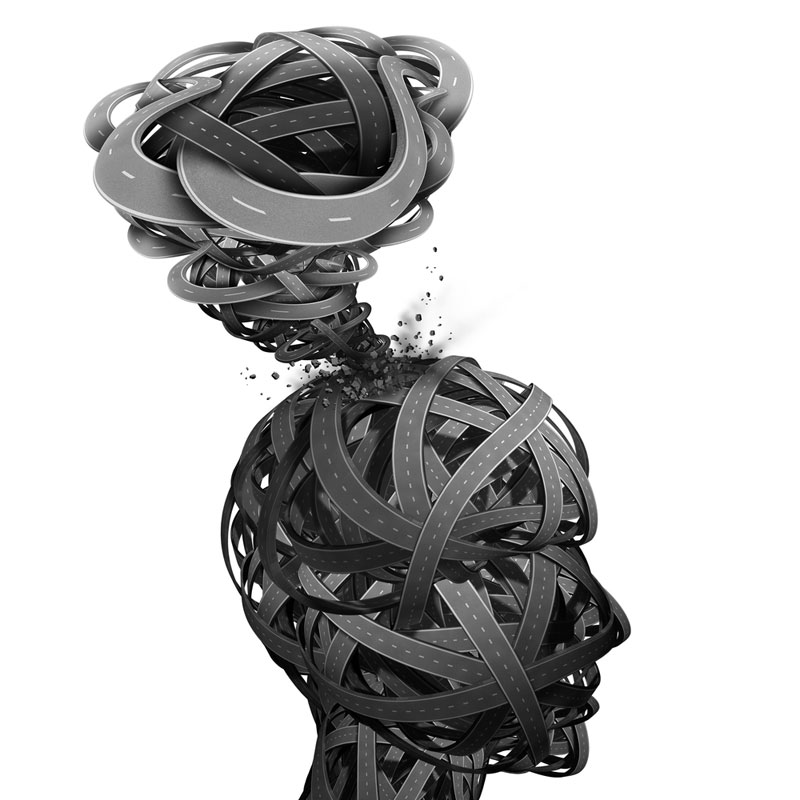
Your Mental Health
Time management techniques lead us into the greater world of the psychology of self employment. Working solo is in many ways analogous to cross country running: You're mostly alone, sometimes questioning your endurance and occasionally feeling lost.
A sense of proportion and balance helps. Sometimes your toughest competition is yourself. The following are some typical obstacles to watch out for:
- Isolation. Many self employed people try to do everything, all by themselves, all the time, going way beyond what we described earlier as establishing intimacy. This may seem to be a cost effective labor policy, but it doesn't work so well for your psycho spiritual needs. Sooner or later, we all need feedback, contact and support. Are you preserving and nurturing important relationships, or neglecting your friends and family? Do you feel misunderstood and under appreciated? Do you have healthy emotional outlets? If not, you may be over isolating yourself, and needing to reconnect.
- Confused priorities. Do you protect your health as avidly as you would your business? Are you a high strung Type A workaholic? Has it been months since you've played, laughed, read a good book, enjoyed sex or felt your connection to nature? If you demand perfection either of yourself or others and find yourself cursing the clock, eating on the run, using coffee like a drug and losing sleep, then you're at risk for heart disease, depression and burnout. If you don't take steps to change your attitude, relax your schedule and delegate responsibility, you'll be headed for disaster. It sounds obvious, but remember you're no good to anyone in a hospital. Your most important business is your health.
- Stress. Staying at home comes with its own stresses. Perhaps you've eliminated all problems with bosses, but are encountering friction with your spouse, kids or the IRS. Bear in mind one of the classic definitions of job related stress: high responsibility and low control. As an independent agent, you should be careful of the tendency to accept all the headaches and forget the cure.
Coping and Conquering
Your stress is defined not so much by what happens to you, as by how you respond to what happens. Here's a stress management checklist to help you make the best choices:
- Identify your stress triggers and reaction styles. What (or who) "gets" to you? How do you typically react to difficult people and situations?
- Observe your emotions. Do you get angry a lot? Are you easily hurt? Do you want to fight or flee? Can you be more objective?
- Practice desensitizing. Mentally rehearse coping under pressure. Gradually expose yourself to stressful situations, under control, and build up your tolerance over time.
- Practice relaxation techniques. Move, stretch, breathe, relax. Try meditation or self hypnosis. Play soothing music. Get a massage.
Everything in nature occurs in cycles. Like the seasons and the tides, the body (which is 90% fluid) has its own ebbs and flows. Our daily bio chemical changes act like an internal clock, regulating our hormone levels, digestive secretions and even brain functions. These circadian rhythms, in turn, affect one's energy levels, moods and even thoughts. Circadian rhythms account for why we perform various activities better at different times of the day. Chrono biologists have concluded (and most office managers, writers and analysts will agree) that the morning is best for concentrated thinking.
Late afternoon seems to be best for physical exercise, when coordination and reaction times are at their peak. In between the traditional siesta time we experience a slump in energy. It's best not to schedule important meetings then. Schedule light information acquisition rather than heavy production. If you can't take a nap, you can still minimize your drowsiness by eating lightly, avoiding fats and high protein foods for lunch. There's wisdom in the tradition of supper after sundown.
In the evening, our senses are at their peak, making it a good time to absorb new information, but also to enjoy dining and entertainment. An evening "constitutional" and only moderate eating before bedtime will help insure a good night's sleep, so you can get up and begin all over again!
Nature's Way
There are other healthy steps you can take to modulate the impact of bodily energy fluctuations. After concentrated mental activity, take a stretching and deep breathing break. When your creativity wanes, walk away from your work and do something else. You'll be all the more effective after pausing and recharging. Regular mild exercise is one of the best ways to keep your body functioning normally.
Natural sunlight and fresh air can help overcome fatigue and depression. Go easy on sugar, chocolate, caffeine, alcohol and tobacco. They wreck havoc on your metabolism. And don't attempt to restore the balance with stimulants and sleeping pills. Take natural alternative high energy snacks, such as dates, raisins, dried apricots and sunflower seeds. Peppermint tea makes a good healthful stimulant, while chamomile will relax you. And vitamins C and B are good anti stress supplements.
One's mental state has a lot to do with physical feelings. It helps to have some exciting activities to look forward to after a hard day's labor or a long work week. It's called "re creation." Hobbies, sports and socializing can make a big difference in your energy levels and outlook. Boredom is actually a kind of stress, so build some variety and novelty into your schedule. It's important to our minds, bodies and souls. And whether you're feeling weak and low, high and hyper, just remember that it's nature's way to insure that everything changes.
